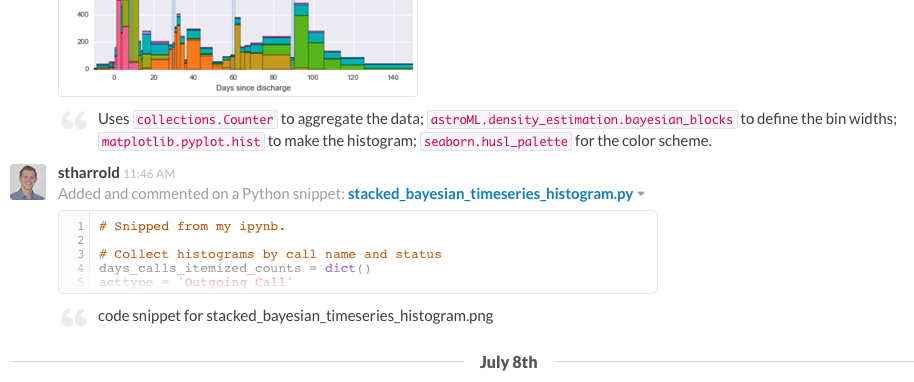Last year I made an astronomy/data science newletter. It was mostly for the UT Austin Astronomy graduate students and post docs, although in principle anyone could join from a link on my website. The content included adverts for upcoming events, new insights from the astroML book, David Hogg videos, resources for learning GitHub, etc. This email list was opt-in, so I wouldn’t be spamming everyone every time I found something cool to share. I used MailChimp, which was easy and nice looking, but had one major flaw– it offered no avenue for discussion or participation from others. Stefano Meschiari and I agreed that a forum with dialog would be much better.
On August 26th, the eve of the first class day at UT Austin, I started yet-another-email-list. The astrodata list’s mission was to promote the interface of astronomy, statistics, and computer hacking. Really, it was just a way for many of us to communicate without spamming the entire list of graduate students and postdocs, because this forum was both opt-in, and decentralized. The email list averages 2-8 threads per month, has a public archive, and has 24 subscribers.
Six weeks ago we started experimenting with Slack. Slack is one among a sea of new team communication tools. There is also HipChat, IRC, Gitter, Trello, Asana, etc. Their main differences relate to their specialization, connectivity to existing platforms, and other features. The main similarity among them is that they remove email from the workflow.
One feature of Slack is the ability to create channels, to which users may subscribe. For example, our Slack group includes channels for stats, hacking, plots, and questions. Users may opt-in to or out-out of specific conversations. So Slack is not only opt-in, and decentralized, but also it is highly user configurable, is archived, and supports rich display of graphics. This latter feature has been especially useful in the plots channel, in which many of us share visualizations we have made, often with supporting source code. The entire history can be searched at ease by scrolling back.
Slack has catalyzed a much higher degree of communication among grad students, especially on topics of methods that are common among the grad students. Computer coding snippets, and plotting tips, statistics, and HPC strategies are all commons topics of discussion.
Update, September 24, 2015-
The UT Austin astrodata channel is still thriving! It seems like Slack has endured well beyond the email-list predecessors and is here to stay. For example, the General channel is daily, and other channels like Hacking and Plots still get several posts or questions per week. There are even event-specific channels, like SciPy for the SciPy conference that was held in Austin in July.
Here is a screen grab of a recent post, demonstrating the rich displaying system:
